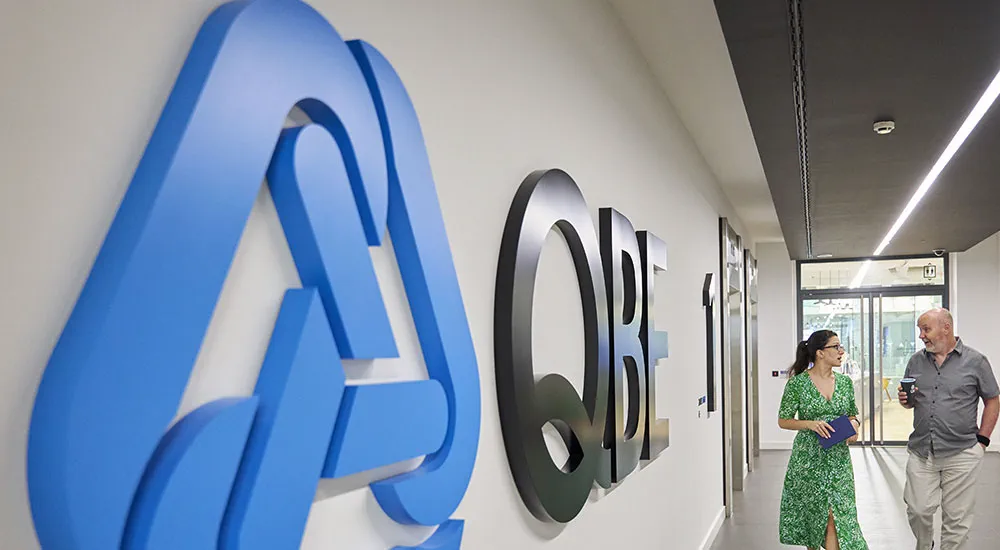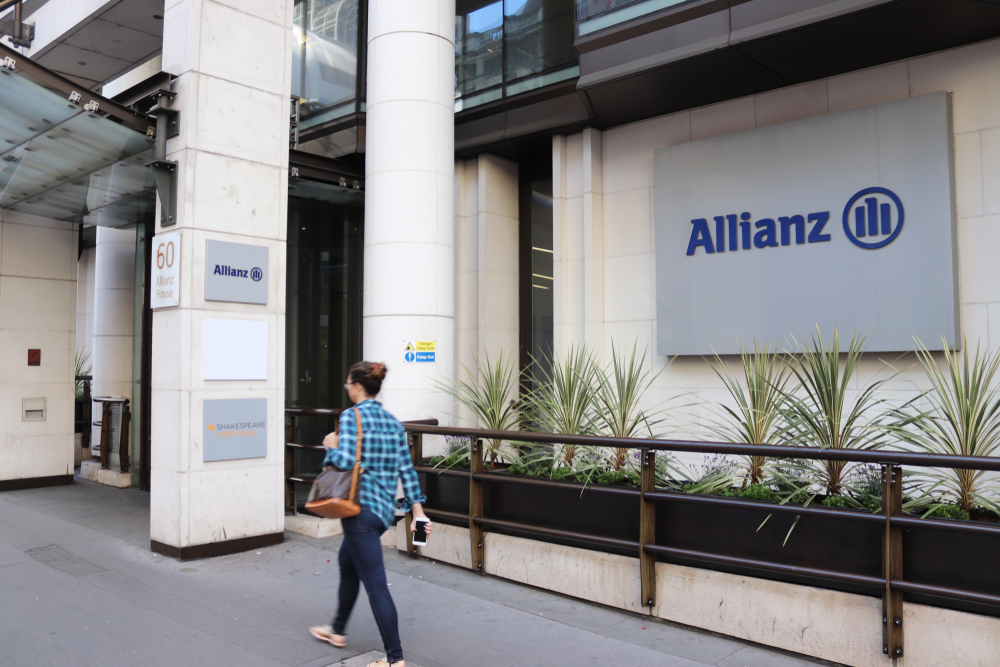Editor’s note: Contributing editor Imogen Rose-Smith, a longtime senior writer for Institutional Investor, continues her bi-weekly column, Institutional Impact, exploring the policies, practices and strategies of pensions, endowments and other large allocators. As Imogen says, she’ll be “tracking what investors do, not just what they say.”
Bill McGlashan is going to prison.
There will be no summer soirees on Richard Branson’s private island for McGlashan, the one-time prince of impact investing. The founder of TPG Growth and – with the rock star Bono and billionaire Jeff Skoll – The Rise Fund, McGlashan is due to report to the minimum-security federal prison in Lompoc, Calif., next month.
U.S. District Judge Nathaniel Gorton sentenced McGlashan to three months and ordered him to pay a $250,000 fine. McGlashan was indicted as part of “Operation Varsity Blues,” the FBI’s 2019 investigation into college-admission cheating that also resulted in charges against Felicity Huffman and Lorie Loughlin and other bold-faced Hollywood names – wealthy parents who cheated to get their children admitted to elite schools.
McGlashan, 57, admitted to paying $50,000 to boost his son’s ACT scores. Prosecutors dropped a separate charge that he discussed paying $250,000 to score his son an athletics admission to USC.
“In a world where fairness is in such short supply, what I did was totally unacceptable,” McGlashan told the court.
Toxic masculinity
Few stars in the impact investment industry have burned so bright or fallen so fast as McGlashan’s.
The Mill Valley resident built TPG Growth into a $13 billion San Francisco power center within Fort Worth, Tex.-based TPG, which has more than $100 billion in total assets under management. In 2016, McGlashan spearheaded the $2.1 billion fundraise for TPG Rise I, and was following up to raise a targeted $3 billion for Rise II. He was seemingly at the top of his game.
TPG parted ways with McGlashan soon after the charges were filed. According to his attorney McGlashan forfeited millions of dollars in carried interest, or profits, generated at TPG Growth and the Rise Fund. Axios reported in 2019 that TPG had moved to deny McGlashan both vested and unvested interests in funds that included stakes in companies like Airbnb and Uber.
McGlashan’s fall comes with an icy shiver of schadenfreude. Oh, to see the self-righteous toppled so publicly. All the hand wringing and gloating, however, belies a larger point. Impact investing has a toxic masculinity problem.
The rich white men who are among the most prominent voices in impact and sustainable investment may be upholding and maintaining the status quo, rather than disrupting it. The new wave of impact funds from not only TPG but Apollo Global, KKR, Bain Capital and others are doling out investment capital to piecemeal solutions to the very problems those firms helped create and profited from.
Consider who is currently profiting the most from the increasing assets flowing into ESG and impact investing. At the top of those firms are mostly white, older, men.
Jeffrey Ubben, ex- of ValueAct, is seeking to raise $8 billion for his new impact firm, Inclusive Capital Partners. Brookfield Asset Management is seeking to raise $7.5 billion for a climate-focused fund. On the public markets side, BlackRock’s Larry Fink is the loudest voice in the room for ESG and shareholder engagement. Even BlackStone, whose CEO Stephen Schwarzman is a Trump loyalist, has an impact investing platform. Schwarzman just hired the former head of ESG at consulting firm McKinsey & Co. to head his family foundation.
The pioneers of socially responsible and, later, impact investment were much more diverse. One of the first major socially responsible index funds – the MSCI KLD 400 Social Index – was created by Amy Domini (see, “How ESG pioneer Amy Domini is finding impact alpha in sustainable solutions”). Double Bottom Line Partners, now DBL Partners, one of the first successful impact venture funds, was founded and headed by Nancy Pfund. Boston Common (Geeta Aiyer) and TriLinc Global (Gloria Nelund) are both founded and headed by women.
What changed, of course, was money. As impact investing became profitable, it was co-opted by the mainstream of finance and alternative investment, a financial sector still largely dominated by white men.
McGlashan lived “a double life,” Assistant U.S. Attorney Justin O’Connell said at the sentencing hearing. “Publicly as co-founder of a social impact fund, he devoted his career to addressing inequalities through making investments that sought to bring positive change by leveling the playing field,” O’Connell said. “But privately, when no one else is looking, he did the exact opposite.”
Arguably, McGlashan was so successful as an impact investor precisely because he worked both sides. McGlashan was an insider, the one behind the velvet rope who knew how to play the game. He could dream up an impact investment fund at a retreat on Branson’s private island and secure the backing of not only U2’s Bono and eBay’s Skoll, but Laurene Powell Jobs, Reid Hoffman and Pierre Omidyar and many others.
In the mind of the investment community McGlashan was a winner. And winners make money. At the Skoll World Forum in 2017, Bono recounted his own first impressions. “I asked… about TPG and people said ‘Oh, they’re motherfuckers.’” But in a good way. “If we want to change things… we can’t be hippie-ish,” he went on to say. “Impact investing has been an excuse for good people to do bad deals… and with TPG and the discipline this company brings, I think we can really unlock a lot of resources”
It’s a chicken and egg problem. Institutional investors only became comfortable making impact investments once these funds were being offered by mainstream alternative investment firms with institutional track records (albeit, not in impact.)
The billionaires were only the bait. TPG Rise has raised money from a laundry list of blue-chip institutional asset owners, including the University of California (where I used to work), the New Jersey Division of Investment, the Florida State Board of Administration, San Francisco Employees’ Retirement System and Washington State Investment Board.
Proponents of impact investing looked at TPG Rise, Apollo Impact, KKR Global Impact, and Bain Double Impact as gateway drugs, which would open the flow of capital from institutional asset owners for impact investments. Some of those, it was presumed, would be in first-time funds or emerging managers. Some investment managers, it was assumed, would not look like the people at every other private equity investment committee meeting.
Confronting inequality
The jury, as McGlashan might appreciate, is out on whether that is the case. Having made a token impact investment in a manager they know well, these allocators may well have ticked the box. Feeling they have done their part, they may have little compulsion to do more.
All of which is not to say that wealthy white men do not have a place in impact investing. And lots of impact investors – both fund managers and allocators – are deeply privileged. That does not make them bad people. And it doesn’t mean that they should not want to do good in the world. Or that they deserve to be punished. Maybe pay more taxes though, guys. (Thank you for listening to my TED talk.)
Rather, the issue is one of money and power.
The profound social and economic inequality that underlies so many of our problems exists, in part, because of an economic engine (of which private equity is only one part) which has given abundantly more to the haves and taken from the have nots.
Any true embrace of the social contract embedded in impact investing has to come with a recognition that some of that power has to be redistributed away from the very rich and back to the rest of society. That includes women, people of color, underrepresented minorities, and those not fortunate enough to have an education from an elite university.
This change needs to happen both in terms of the investments being made, and the impact investing funds and firms themselves. As a source of wealth creation, impact investing needs to make sure it is not just generating wealth for the people already at the top of the economic heap.
You can in theory run a climate fund or business without taking a view on social equality. Elon Musk certainly hasn’t demonstrated much of an interest, unless his plan to colonize Mars counts. But it’s hard to stake a claim as an impact investor without recognizing the need for societal systems change. If the impact investment industry gets co-opted by those who only want to maintain the status quo, it is doomed to fail.
McGlashan at least seemed to get the sheer grinding inequity of the global economy. His conversion to impact investing was born out of his time spent living with his family in Moabi, India, which he did in an effort to understand the South Asian economic story. Even granting that McGlashan was not merely grabbing onto the latest asset management marketing opportunity, the TPG fundraising effort was effective and cynical.
More concerning is the behavior of a firm like Apollo, which wheeled out its impact investment activities just in time to have it serve as a fig leaf for questionable behavior by Apollo’s chairman and now-former CEO, Leon Black.
In August 2019, Jeffrey Epstein, convicted pedophile and money manager to the ultra-rich, committed suicide in a New York jail. Epstein was being held on federal charges of sex trafficking. Black turned out to have been a client of Epstein’s, even after his 2008 Florida conviction and plea agreement for soliciting sex from an underaged minor, which required Epstein to register as a sex offender. Via a spokeswoman, the private equity honcho said he used Epstein for trust and estate planning services, as well as family office philanthropy and investment services. There has never been any suggestion that Black was involved with Epstein’s alleged sex trafficking.
The same week of Epstein’s death, while dealing with the fallout of Black’s connection to the pedophile, Apollo launched its first impact investment fund. In October 2020, the New York Times published an investigation revealing just how close Black’s ties to Epstein were between 2012, when Black hired Epstein, through 2017, when the two had a falling out. The revelations caused some investors to step back from the firm. An internal investigation showed that Black paid Epstein $158 million in fees, loaned him more than $30 million and donated $10 million to his charity. Black stepped down in March.
News of Apollo’s new impact investment business fund leaked in 2019 and, a month before The New York Times article, Apollo announced the fund’s leadership team, including Lisa Hall, a veteran of Calvert Foundation (now Calvert Impact Capital), Anthos and the Beeck Center at Georgetown University. In March of this year, in the midst of the fallout from Black’s departure, Apollo announced a star-studded impact investment advisory committee
It’s quite possible the highly diverse impact advisory committee that Hall has pulled together at Apollo will do good things. People have high hopes for it.
Cracks already may be showing. Bloomberg last week reported that Apollo’s portfolio company, the for-profit University of Phoenix, which Apollo acquired in 2017 and touted as a demonstration of its impact bona fides, might not in fact be a force for good. Phoenix has already made a tidy profit for Apollo and its investors; promised reforms to the tarnished venture remain a work in progress, Apollo says.
During his sentencing hearing McGlashan acknowledged he had not lived up to his own moral standards. He told the court his behavior was “such a conflict with the way I’ve lived my life and with what I care about, and it’s impossible to explain or justify my involvement.”
It will be curious to see what the fallen idol of impact does after serving his time. Had his child been older, or younger, McGlashan likely would never have been nabbed in the Varsity Blues dragnet. McGlashan was unlucky: he got caught. Perhaps he’ll come to appreciate the U.S.system of justice is far, far more cruel to people of color who have their own bad luck to get caught up in it.
According to Bloomberg, “McGlashan’s plea deal includes a provision that he can still pursue a challenge to the government’s theory that test scores are ‘property’ under the law.” If he wins on that point, he can withdraw his guilty plea.
So McGlashan may still hold a get-out-of-jail-free card. Fairness remains in short supply.
Imogen Rose-Smith is a contributing editor at ImpactAlpha. A longtime senior writer for Institutional Investor, she was most recently a fellow in the Office of the Chief Investment Officer of the University of California. Catch up on all of Imogen’s Institutional Impact columns:











